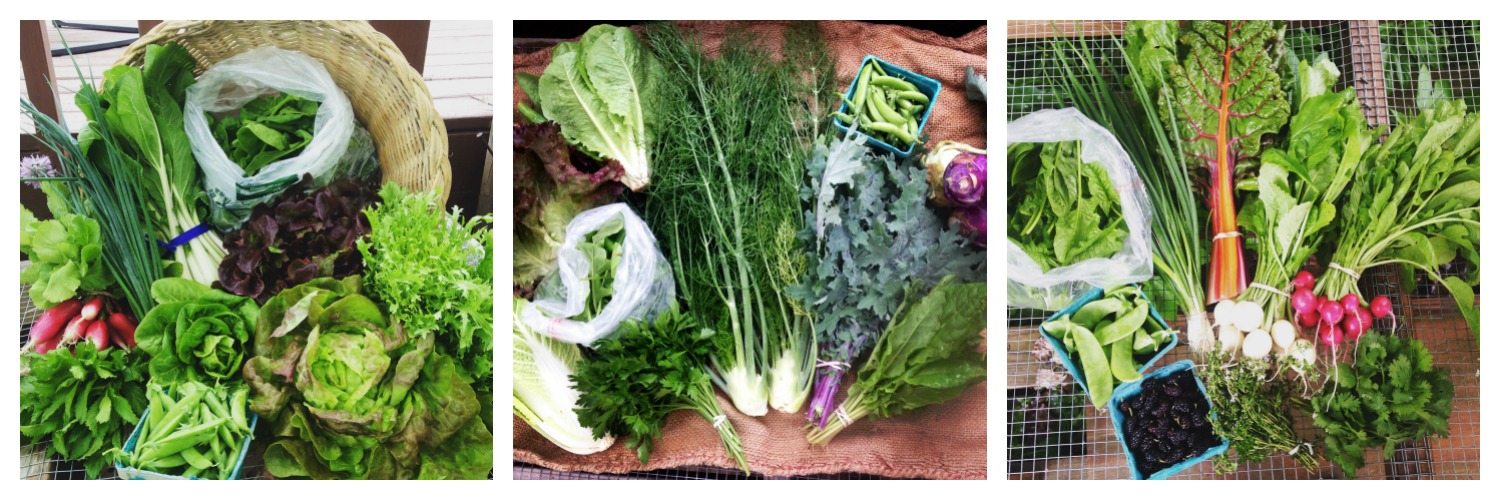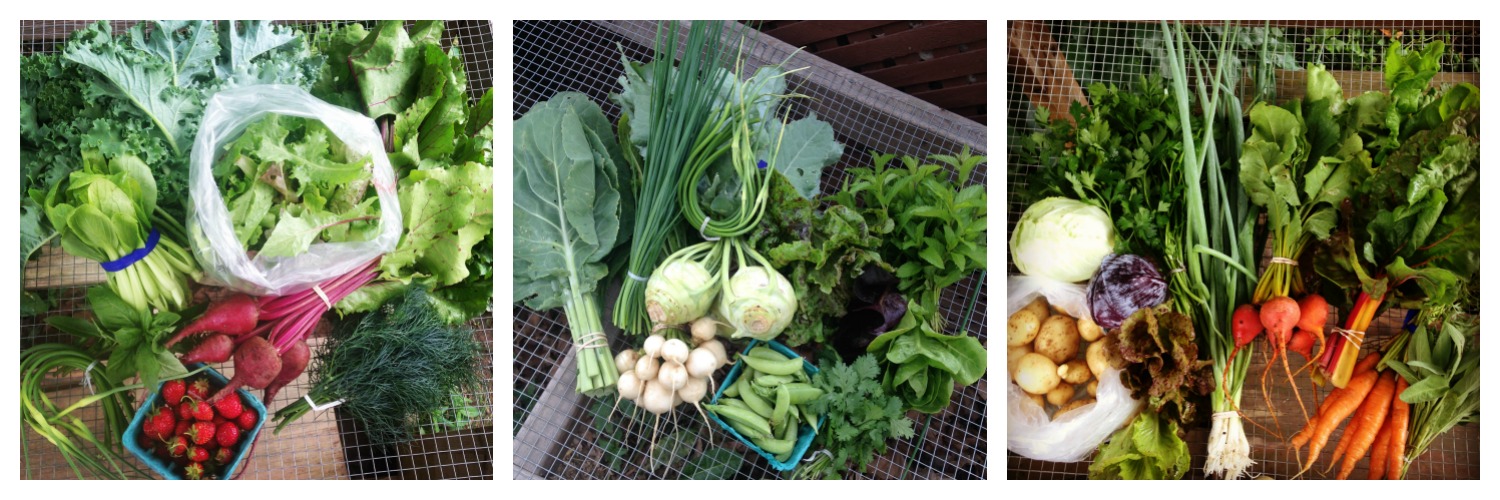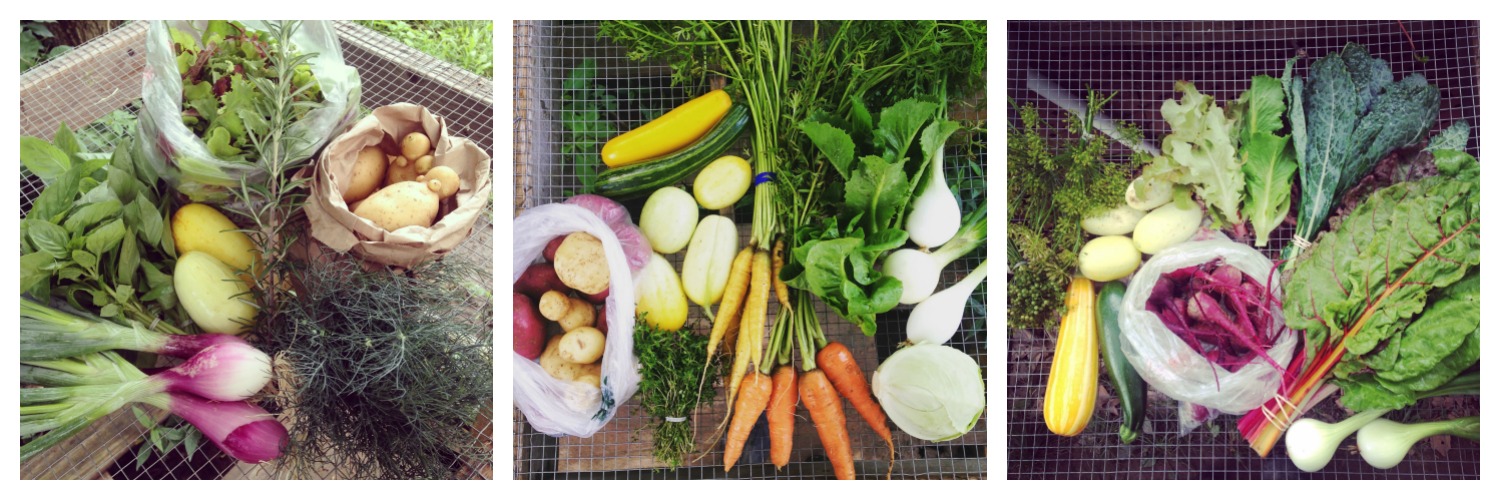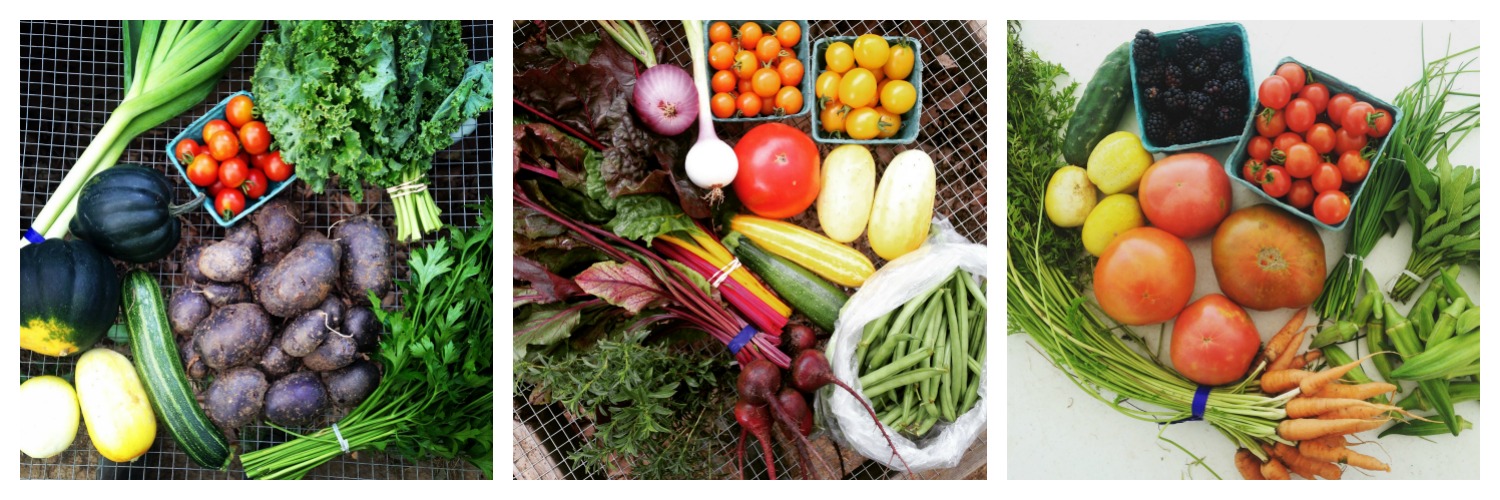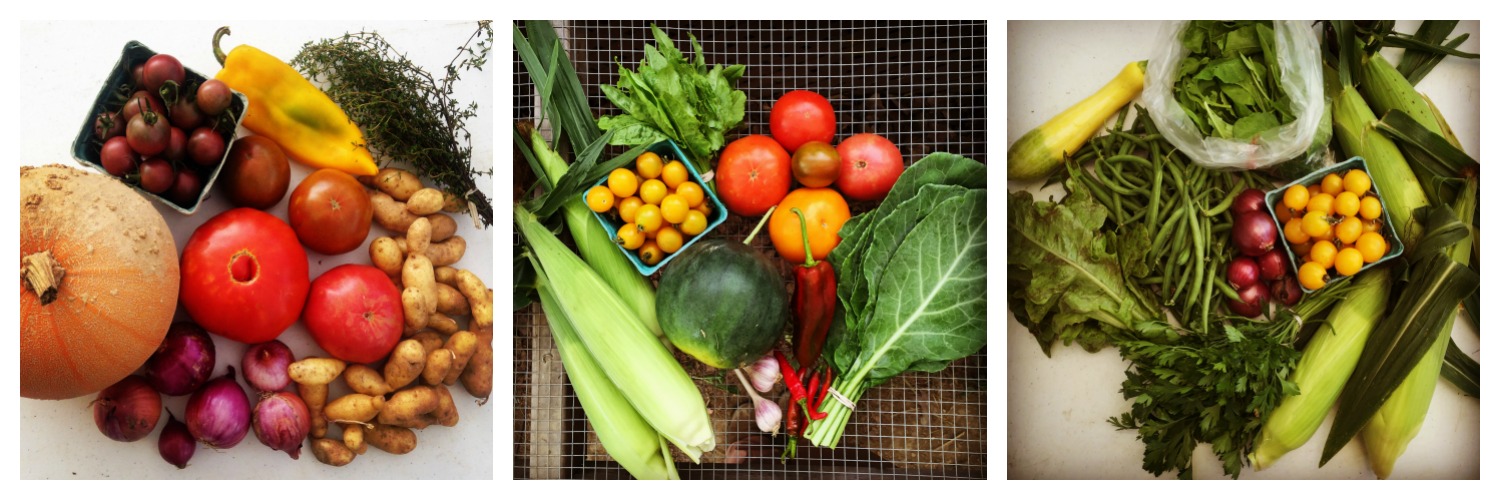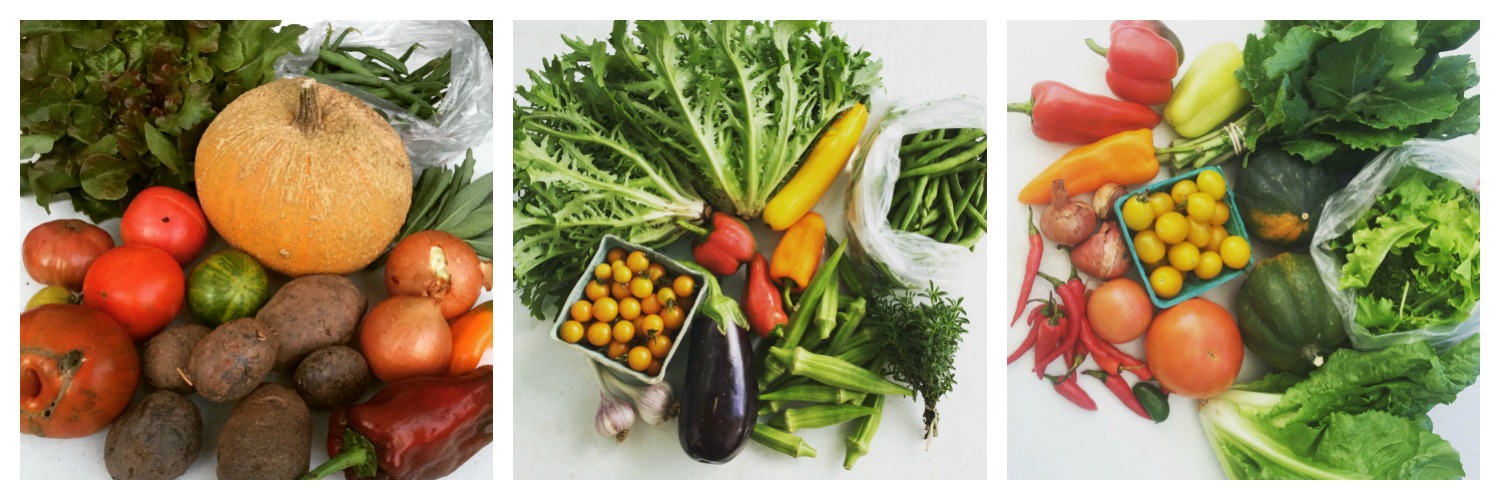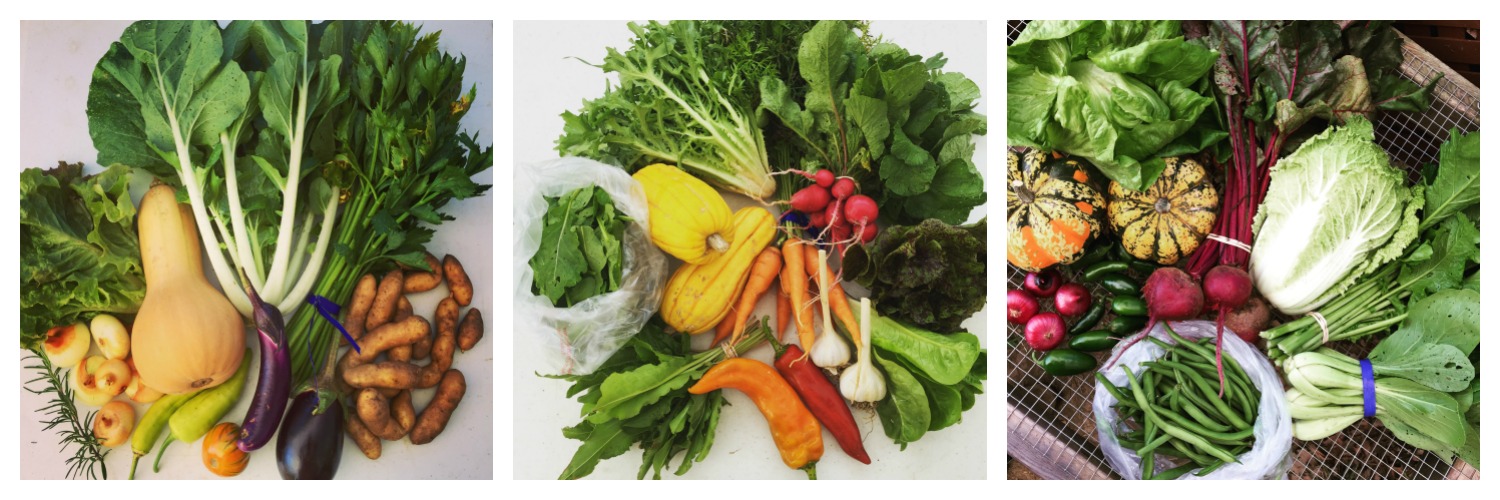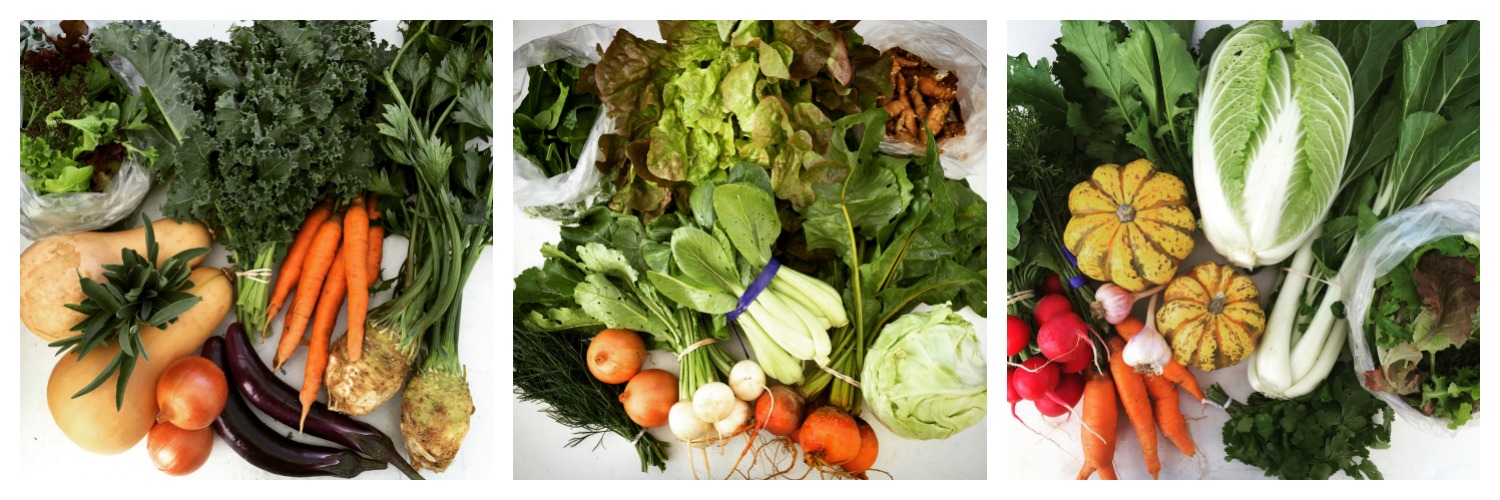WEEKLY CSA SHARES ARE BACK IN 2025!
OUR 2025 CSA PROGRAM IS FULL – ADD YOUR NAME TO OUR WAIT LIST BELOW
About our Community Supported Agriculture (CSA) Program:
Community Supported Agriculture (CSA) is at the heart of what we do on our farm. We love growing for our friends, family, and community.
By signing up, you become a member of our farm, sharing in our endeavor to grow delicious, healthy, and seasonal food for our community AND our efforts to be good stewards of the the land we care for in Northern Kentucky.
In return, during the growing season you will receive a weekly share of produce, a newsletter full of recipe ideas and musings from the farm, and invitations to on-farm events.
The Details:
- Dates: May 29 – November 20 (with a scheduled break on July 31)
- Pick up day/time: Thursday afternoons
- Pick up locations:
- On the farm (near Augusta, KY)
- Walnut Hills (Cincinnati Birth Center)
- Covington (a private residence in Wallace Woods)
- Size: 6-8 seasonal vegetables per share
- Cost: $650 (equivalent to $26/week)
- Other perks:
- Digital newsletter accompanying each monthly share with veggie descriptions, recipe ideas, and news from the farm
- 10% discount at our Annual Plant Sale (May 3 & 4)
- CSA member picnic on the farm in September
- Membership in an alternative food system that places importance in local ecology, community, and economy.
How to Sign Up:
All slots are filled for the 2025 CSA season. Add your name to the wait list below if you’d like to be contacted if we have space for more members later in the season.
- Add your name to our CSA WAIT LIST
More details about the CSA:
- We are committed to reducing waste from packaging as much as possible – please bring your own bags (or a cooler) when you pick up your veggies
- Pick-ups can occasionally be re-scheduled with advanced notice due to planned vacations
- A household may purchase more than one membership if you would like double the amount of produce each week
About Dark Wood Farm:
Dark Wood Farm has been owned and operated by Annie Woods since 2014, and is now also stewarded by Annie’s partner, Romain Picasso. The farm is located in Northern Kentucky, within an hour drive of Cincinnati, OH.
We grow more than 60 types of vegetables and herbs on a compact 1-acre footprint. All produce is grown without chemical fertilizers, pesticides, and herbicides, according to natural and organic growing principles.
Romain, Annie, our friend, Erica, and a small crew of friends and family seed, plant, weed, and harvest everything by hand. We improve our soil by adding compost, mineral amendments, and growing cover crops. We manage pests, plant diseases, and extreme weather by using fabric row cover, planting beneficial crops to attract insect predators, and rotating a diverse set of crops through our fields from year-to-year.


